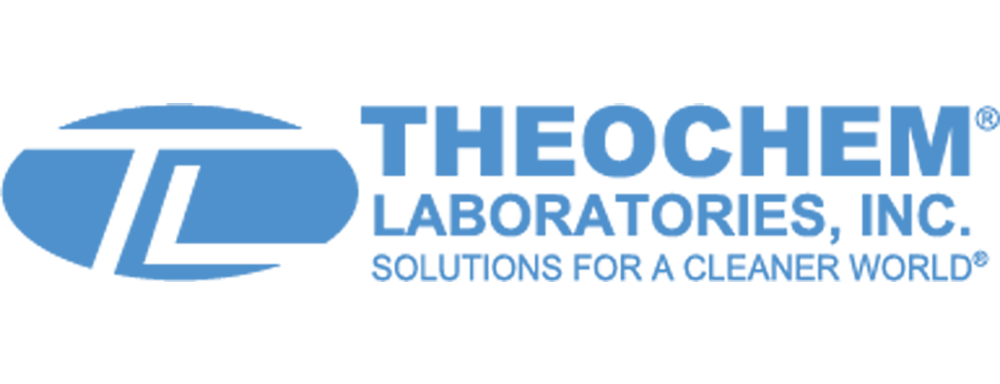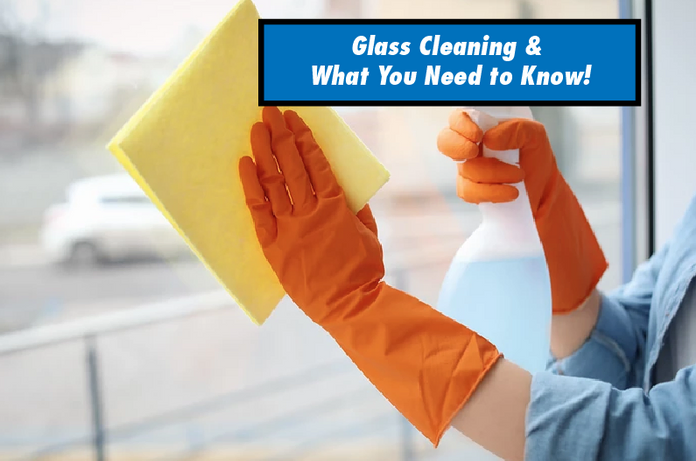When it comes to glass cleaners and polishers, there are several questions that the average consumer quickly thinks about before making their inevitable purchase. If you’ve ever wondered what’s the difference between an ammoniated and a non-ammoniated glass cleaner, if you can use a glass cleaner on only glass surfaces, and what surfaces should be avoided when using glass cleaners, then you’re in the right place! As always, we here at Theochem Labs will tackle all these questions as well as offer our best recommendations below so by the time you’ve finished this article, you’ll be a glass cleaning pro!
In-Depth Window Cleaning Analysis
Ammoniated Cleaners: Right off the bat, the clear distinction between ammoniated and non-ammoniated cleaners are that ammoniated cleaners are treated with or combined with ammonia. The reason for this is ammonia has the characteristic of rapidly evaporating due to its high vapor pressure. When it does evaporate, it doesn’t leave behind dirt and dust. Also, because of the quick evaporating nature of ammonia, they are less likely to leave streaks that make it an ideal additive to add to glass cleaners. With that being said, please see our 3 recommendations for ammoniated glass cleaners that you should be using.
-
Clearview: This ammoniated, quick-cleaning, non-streaking glass and hard surface cleaner is a great addition to your cleaning arsenal. Clearview can be used on glass, stainless steel, and countertops all in one easy step. Lastly, Clearview is economically formulated to help you get the most bang for your buck and is ready-to-use so you can quickly clean those streaky glass surfaces and more!
-
Mirror Image: Our second recommendation for ammoniated cleaners is Mirror Image, which acts as a glass and hard surface cleaner fortified with several grease-cutting solvents. Mirror Image quickly penetrates dust, smoke, grease, and grime on all glass and window surfaces. Lastly, Mirror Image is also ready-to-use so you start cleaning in seconds!
-
Shine-O-Glass: Our final recommendation is our powerful Shine-O-Glass cleaner, which is the ultimate economical option for your glass cleaning needs. Shine-O-Glass imparts a monomolecular film to prevent re-soiling, so surfaces stay cleaner longer. Shine-O-Glass is also an ideal solution for a non-filming cleaner for stainless steel. This product is pure liquid gold for any hard surface! Just like our other recommendations, Shine-O-Glass comes ready-to-use or can be diluted.

Non-Ammoniated Cleaners: On the other hand, we have non-ammoniated cleaners which as you know by now, do not contain ammonia. Instead, these ammonia-free cleaners may contain alcohol, vinegar, or other surfactants that perform in a similar fashion to ammonia. Consumers will waver to using a non-ammoniated glass cleaner for several reasons. One advantage is there is no lingering smell that may be present if using a product containing ammonia. Another advantage is that ammonia-free glass cleaners can be used on almost all window surfaces and tints, unlike ammonia-based glass cleaners. With that in mind, we have one solid recommendation that stands alone when it comes to our non-ammoniated glass cleaners.
-
Kleerview: Our non-ammoniated glass cleaner performs wonderfully as a transparent surface and stainless-steel cleaner. Kleerview leaves no residual film behind! Kleerview features a delightful citrus fragrance and is perfect for use on such surfaces as X-ray tables, I.C.U. monitoring equipment, computers, glass, plexiglass, and reflective surfaces. Like all of our recommendations, Kleerview comes ready-to-use and also helps reduce static charge.
Glass Cleaning Warnings: Although glass cleaners work on a variety of surfaces and were designed to make our lives easier, there are some surfaces you should avoid altogether before you start rolling up your sleeves. Because ammonia works so well on glass and hard surfaces, that same effectiveness can actually destroy or ruin other surfaces you may want to clean. See below for our three suggestions you should keep in mind before you begin using ammoniated glass cleaners.
-
Avoid Direct Sunlight: Since ammoniated glass–cleaners have the capability to dry quickly, you need to keep in mind applying to surfaces that face direct sunlight. Although ammoniated glass cleaners are known for not leaving streaks behind, applying glass cleaners to a surface with direct sunlight can do quite the opposite. Because glass that’s facing the sun is significantly hotter due to the heat being magnified by the sun, this results in the ammonia drying before the evaporation can even begin, leaving behind unwanted streaks.
-
Do Not Use on Tinted Glass: When using an ammoniated glass cleaner, avoid using on tinted glass at all costs. In fact, car detailers use ammonia-based glass cleaners for the exact opposite purpose by removing tints from older vehicles. When an ammoniated glass cleaner is used on tint, this results in discoloration as well as bubbling. In time, this eventually causes the tint to fall off completely. So, unless you’re trying to remove your tint, please avoid ammoniated glass cleaners on your windows!
-
Can Ruin Your Car: As we have touched on previously, ammoniated glass cleaners are powerful. With that being said, ammonia can be known to cause damage to surfaces such as rubber, vinyl, plastic, paint, and chrome trim which are found all throughout your vehicle. Ammoniated glass cleaners can also deteriorate wax, so we highly caution against using these types of products on any such surface.
There you have it, your crash course on the main points of using ammoniated and non-ammoniated glass cleaners! If you have streaky or smudged windows, dirty hard surfaces, or stainless steel that needs attention, you now know our top picks for handling any of these. Thank you as always for taking the time to read our blog, stay safe and clean wisely!


